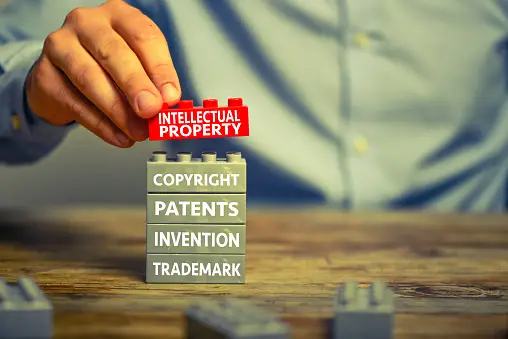Colored with scrolling
Try scrolling the rest of the page to see this option in action.
Try scrolling the rest of the page to see this option in action.

Thinking of intellectual property? It’s one of the most important terms in your business that you should know about. No matter, if you’re a business owner, a writer, a designer, or a painter, you may have innovative ideas that you want to protect. Don’t worry, as today we’ll cover all the essential points that you should know about intellectual property. Let’s dive in!
Intellectual property (IP) is a legal concept that is about the creations of the human mind. It can be an invention, a new idea, a poem, artistic designs and works, or a business logo. IP covers all that your mind creates to ensure that other people don’t use your creations and pretend that it’s their work. Especially in business, intellectual property plays a crucial role, because the videos, logos, and new technological inventions you make should be protected. Through IP, you get the rights to your creations and get the recognition of your work.
When we speak about intellectual property, we mean 4 major types. Each of them has their own purpose and are relevant to specific situations. Let’s check each of them:
When it comes to protecting your intellectual property, it’s all about understanding the rules and taking the right steps. Here’s a breakdown of how to protect different types of IP and why it’s crucial:
Patents are like a shield for your inventions. To protect them, start by filing a patent application first.
This procedure entails giving the patent office access to the specifics of your innovation. Experts will review your application to make sure it satisfies the requirements for a patent. A patent, usually good for 20 years, will be awarded to you after approval.
With a patent, you have the exclusive right to your invention. That means no one can copy, use, or sell it without your permission.
Trademarks protect your brand’s identity. Trademarks often get their protection through registration, which involves filing an application with the local or regional intellectual property (IP) office. However, it’s worth noting that in certain countries, trademark rights can also be established through actual use.
Trademarks help customers recognize your brand. They know it’s you when they see these symbols. It prevents others from using your branding to confuse customers.
Copyrights are like a safety net for your creative works. They automatically protect your creative stuff as soon as it’s created and put down in some form. You just need to file a copyright registration. Using the copyright symbol © is a simple way to let others know your work is protected.
With copyrights, you have exclusive rights to your work. No one can copy, distribute, perform, or display it without your say-so.
Trade secrets are like hidden treasures. They’re not registered like patents or trademarks. Instead, they stay safe by keeping them super secret.
Things like secret recipes or unique processes give your business an edge. Keeping them confidential is the key.
Understanding IP laws can be tricky. This is where lawyers come in handy. They’re professionals in IP laws and can help with stuff like patent applications or legal issues. They give you advice, represent you in legal matters, and make sure your IP stays protected.
If you want to find a lawyer, opt for legal service marketplaces that are like matchmaking sites for locating the right lawyer. You can search for lawyers who specialize in IP law. It’s a quick and easy way to connect with the right lawyer who knows what you need.
Now you know all about intellectual property, its types, and the importance of a legal professional. Make sure you protect all your rights and continue having unique ideas, products and services. And for comprehensive legal support, consider the LawVo subscription. You’ll get access to top-notch legal professionals, customized legal solutions, unlimited access to 24/7 legal support, and secure, confidential consultations.
Back to blogs